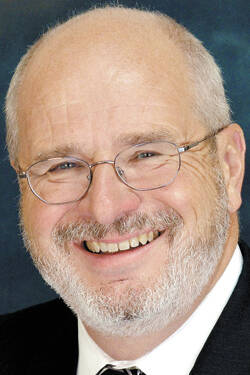
Krull
Last year, I bought an electric vehicle.
It was a lower-end Tesla. (Yes, I bought it before Elon Musk began demonstrating that he believes obscene wealth also grants one omniscience.)
I had planned all along to buy an EV, but not for a couple more years. I wanted to wait a bit to let the research and development proceed a little more in what was a rapidly developing industry. I also wanted to give the EV charging infrastructure some additional time to expand.
But my old car, a hybrid with nearly 200,000 miles on it, conked out.
So, I adjusted my timetable and bought my first electric car.
Almost as soon as I drove it off the lot, acquaintances who considered themselves car experts began showering me with unsolicited counsel.
Actually, “counsel” is too mild a term.
Most of what they offered was criticism, much of which suggested I was an idiot or a sucker for making such a purchase. They warned me I’d spend more time charging my car than I did driving it and that—inevitably—I’d find myself stranded by the side of the road after my vehicle ran out of juice.
At least two things were remarkable about these exchanges.
The first was that the EV critics were remarkably misinformed.
One of them delivered an impassioned soliloquy about how I’d be up a certain well-known creek when my car’s battery ran dry. Tesla transmissions didn’t have a neutral option, he assured me, so they couldn’t be towed.
When I showed him how I put my car into neutral—by the tricky, complicated maneuver of using the shift lever on the steering column that also puts the vehicle into drive or reverse—he went into something resembling shock.
Similarly, another guy sent along a meme. The point of the meme was that, as winter approached, drivers of electric vehicles would experience panic about keeping their cars warm in traffic jams when the batteries died.
I asked him how he planned to keep his internal combustion vehicle warm if it ran out of gas in a traffic jam. By setting fire to the interior?
The second thing that struck me about all this interest in my decision to buy an EV is how much fear it seemed to inspire. The fact that someone might make a different choice or try something new seemed to shake some folks right down to their socks and garters.
At no time did I offer comments or criticism of their means of transportation.
When I pointed this out to some of these car critics, they assured me that their aspersions were not personal. They just resented the way electric vehicles were being “forced” on them, they said.
How, I asked, were they being forced to buy any car they didn’t want?
Well, with the tax breaks and other incentives—many of them figments of their imaginations—being offered to electric car purchasers. It wasn’t fair, they said, to subsidize one form of transportation over another.
When I pointed out that the railroads made similar complaints when federal, state and local governments took on the task of building paved roads all over the country—thus subsidizing the growth of the automotive industry—they didn’t know what to say.
The truth is that innovation always scares some people. Change creates uncertainty, which forces us to live with doubt.
And doubt makes us question some of our own choices, even when no one else is.
I enjoy driving my electric car. I like its acceleration and the quiet ride it provides, which makes it easier to listen to music or recorded books.
But I also had fun driving the hybrids I had before I bought the Tesla.
And I also had a good time at the wheel of the straight internal combustion vehicles I had before I got around in the hybrids.
They were all cars, methods of transportation designed to get one from here to there, preferably in some comfort and with a little style.
Will electric vehicles completely replace traditional internal combustion automobiles?
Probably not.
Cars have been around for a long time, but people still ride trains and horses—just not as much as they once did.
The reality is that electric vehicles are here—and there’s not much point in fearing them.
Particularly if what frightens you isn’t even real.
John Krull is director of Franklin College’s Pulliam School of Journalism and publisher of TheStatehouseFile.com, a news website powered by Franklin College journalism students. The views expressed are those of the author only and should not be attributed to Franklin College. Send comments to [email protected].